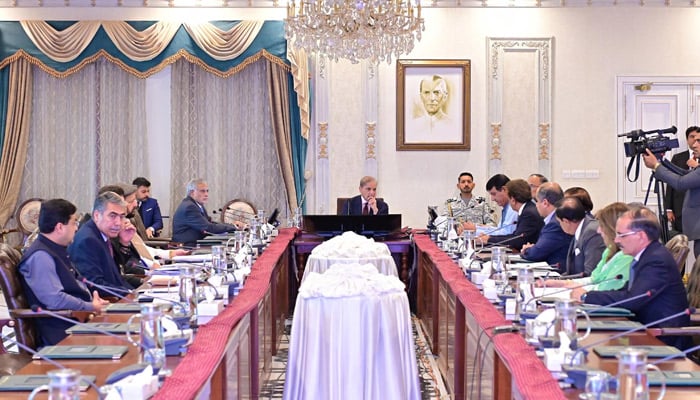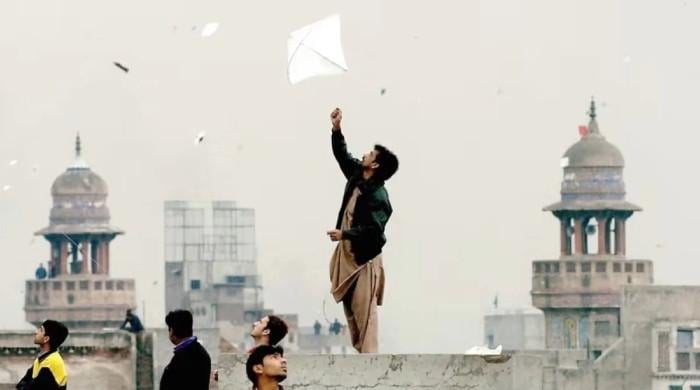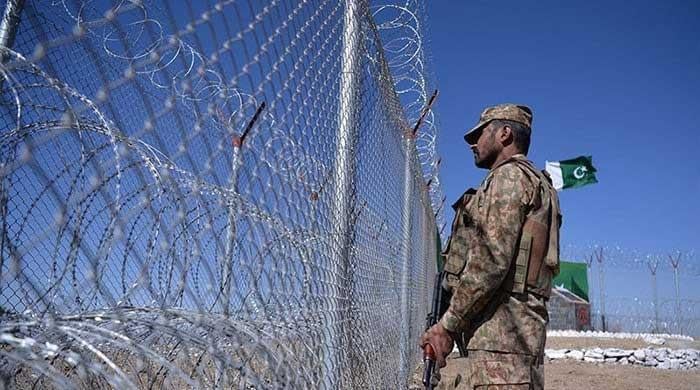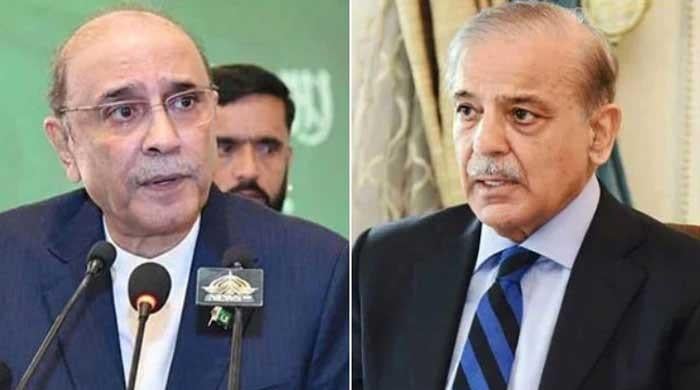PM directs removing impediments to expedite Diamer-Bhasha Dam project
Premier says such projects to help establish effective system for energy production, abundant water storage
June 03, 2025

- PM says country’s self-dependence linked with affordable electricity.
- Directs prioritising completion of projects like Diamer-Bhasha Dam.
- "Building new dams crucial to enhance water storage capacity."
ISLAMABAD: Prime Minister Shehbaz Sharif on Tuesday directed authorities concerned to remove all impediments hindering the timely completion of the Diamer-Bhasha Dam, saying that the country’s self-reliance linked with affordable electricity and agriculture.
Chairing a meeting on the construction of Diamer-Bhasha Dam and the other matters of water resources, the premier said building new dams was crucial to enhance water storage capacity, ensure water supply for agriculture, and prevent floods.
He said that the country’s self-dependence was linked with affordable electricity and agriculture, which required increased water storage and efficient water usage.
PM Shehbaz also directed prioritising the completion of projects like Diamer-Bhasha Dam to establish an effective system for energy production and abundant water storage.
The meeting was attended by federal ministers Ahsan Iqbal, Engineer Amir Muqam, Azam Nazeer Tarar, and Moeen Wattoo, Adviser to Prime Minister Rana Sanaullah, Chief Minister of Gilgit-Baltistan Gulbar Khan, and relevant senior government officials.
The Diamer-Bhasha dam is a 4,500-megawatt project with an estimated cost of US$ 15 billion and which is expected to be one of the largest dams in the world after completion.
The project, being termed as a positive stimulus for Pakistan’s economy, will not only create 16,500 jobs but will also generate 4,500 MW of electricity. Additionally, the project will also irrigate 1.2 million acres of agricultural land while extending the life of Tarbela Dam by 35 years.
Last month, Federal Minister for Planning Ahsan Iqbal said that the government would ensure the early completion of all hydro-related projects, including the Diamer Bhasha Dam, to prevent India from taking advantage.
India is considering plans to dramatically increase the water it draws from a major river that feeds Pakistani farms downstream, as part of retaliatory action for a deadly April attack on tourists in Indian Illegally Occupied Jammu and Kashmir's (IIOJK) Pahalgam that it blames on Islamabad, according to four people familiar with the matter.
Following the attack, New Delhi "put in abeyance" its participation in the Indus Waters Treaty of 1960.
Pakistan has denied involvement in the incident, but the accord has not been revived despite the two nuclear-armed neighbours agreeing on a ceasefire earlier this month following the worst fighting between them in decades.
Speaking to a delegation of engineers led by Secretary General Institution of Engineers Pakistan (IEP) Engr Ameer Zameer, the minister said work on these projects is being prioritised in light of India's water aggression. He added that funds would be allocated on a priority basis for such initiatives to ensure long-term water security.
Indian Prime Minister Narendra Modi had said that Pakistan would not get water from rivers over which India has rights, but Inter-Services Public Relations (ISPR) Director General Lieutenant General Ahmed Sharif Chaudhary shrugged off the remarks as an insane thought.
In an interview with Al Jazeera, the spokesperson of armed forces said that only a madman would think that India can stop Pakistan’s water as it was impractical to cut off water for 240 million people.
After unilaterally suspending India's participation in the treaty, Modi ordered officials to expedite the planning and execution of projects on the Chenab, Jhelum and Indus rivers, three bodies of water in the Indus system that are designated primarily for Pakistan's use, Reuters reported.
India is permitted to draw a limited amount of water from the Chenab for irrigation, but an expanded canal — which experts said could take years to construct — would allow it to divert 150 cubic meters of water per second, up from about 40 cubic meters currently, as per official discussions and documents seen by sources.
About 80% of Pakistani farms depend on the Indus system, as do nearly all hydropower projects serving the country.
Any efforts by Delhi to build dams, canals or other infrastructure that would withhold or divert a significant amount of flow from the Indus system to India "would take years to realise," said water security expert David Michel of the Washington-based Centre for Strategic and International Studies.
— With additional imput from Reuters









